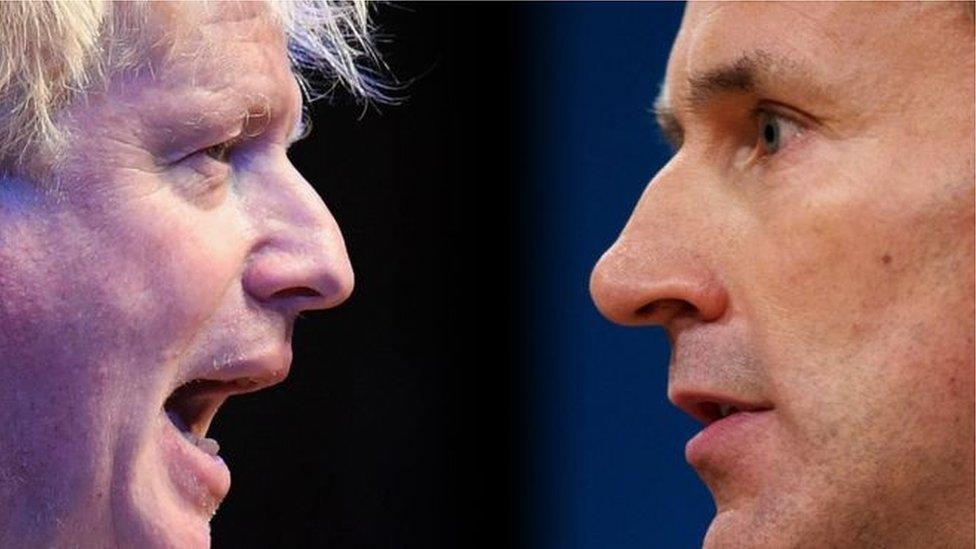Brexit: How could 'alternative arrangements' for the Irish border work?
- Published
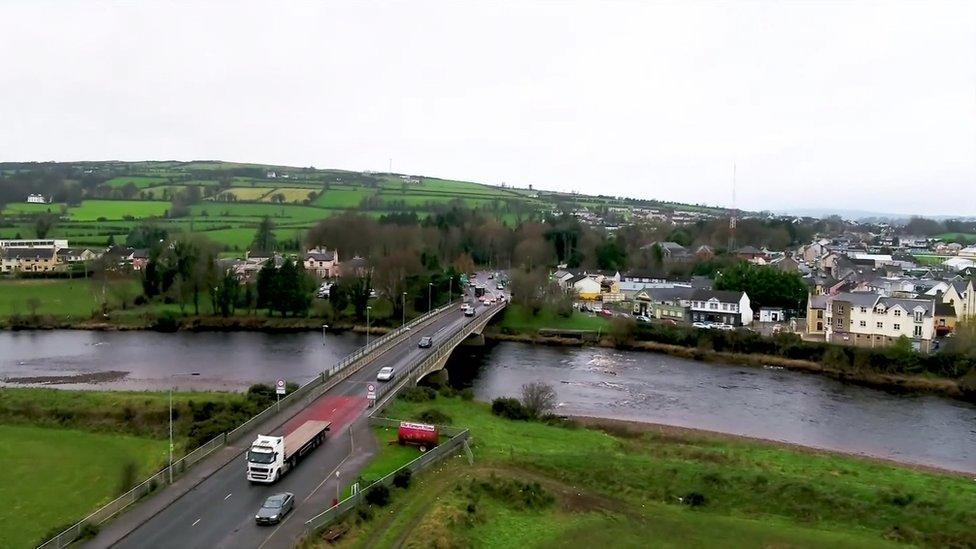
The aim is to keep border crossings like this one at Strabane/Lifford free of checkpoints
The prime minister believes "alternative arrangements" for the Irish border are the key to scrapping the controversial backstop plan and unlocking a Brexit deal.
But what are they and why are they necessary?
What's the problem?
If Brexit happens, the UK's only land border with the European Union (EU) would be between Northern Ireland and the Republic of Ireland. In theory, that would mean checks on certain products because rules and standards may not stay the same.
The worry is this could lead to a so-called hard border between Northern Ireland and the Republic of Ireland, with infrastructure installed so checks could be carried out.
To address this problem, Theresa May negotiated a solution called the Irish backstop. But it proved controversial as many Conservative MPs felt this plan would keep the UK too closely tied to the EU after Brexit with no way of getting out of it.
The political opposition to the backstop eventually led to Mrs May's resignation. Boris Johnson, the new Prime Minister, has vowed to scrap it.
What are alternative arrangements?
Boris Johnson has praised a report written by the Alternative Arrangements Commission, external, led by Conservative MPs Greg Hands and Nicky Morgan.
The commission's purpose is finding a way of avoiding checks while not having to stick to the EU's rules and standards.
This is important to Brexit supporters who want the UK to leave the EU's customs union and be able to strike trade deals around the world.
At the heart of the Alternative Arrangements report is a reliance on existing technology and trusted traders schemes.
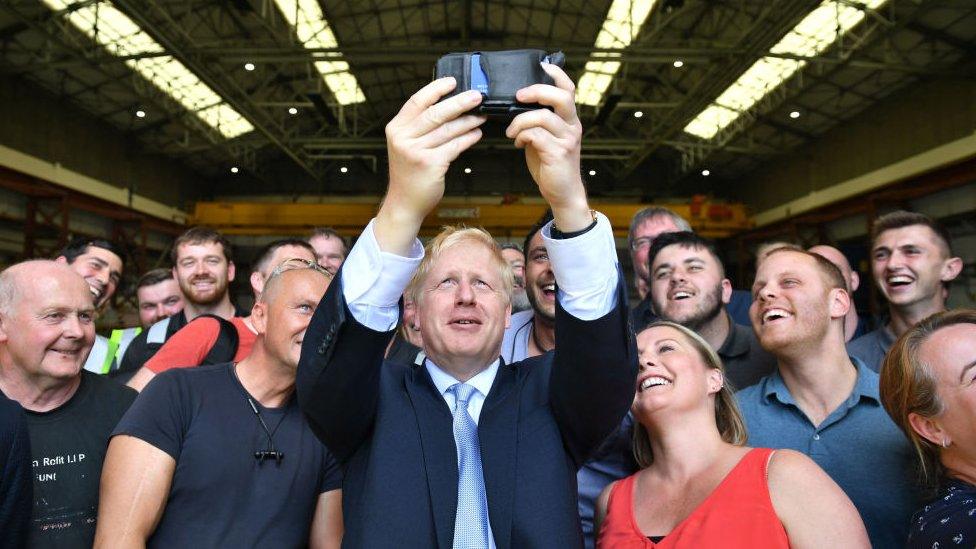
Boris Johnson has previously said there are "abundant" technological solutions
What is a trusted-trader scheme?
It recognises companies that are reliable and trustworthy in dealing with customs - the process where businesses declare what goods they're trading.
Once on the trusted-trader scheme, approved businesses are allowed to avoid many checks and benefit from fast-track processes.
The most common trusted-trader arrangements are Authorised Economic Operator (AEO), external schemes.
Getting AEO status can be costly and time consuming, so new schemes would be needed for small businesses.
For UK traders to benefit from any scheme, the EU would need to recognise it.
Some trade experts have also cautioned that it would not guarantee the end of all checks.
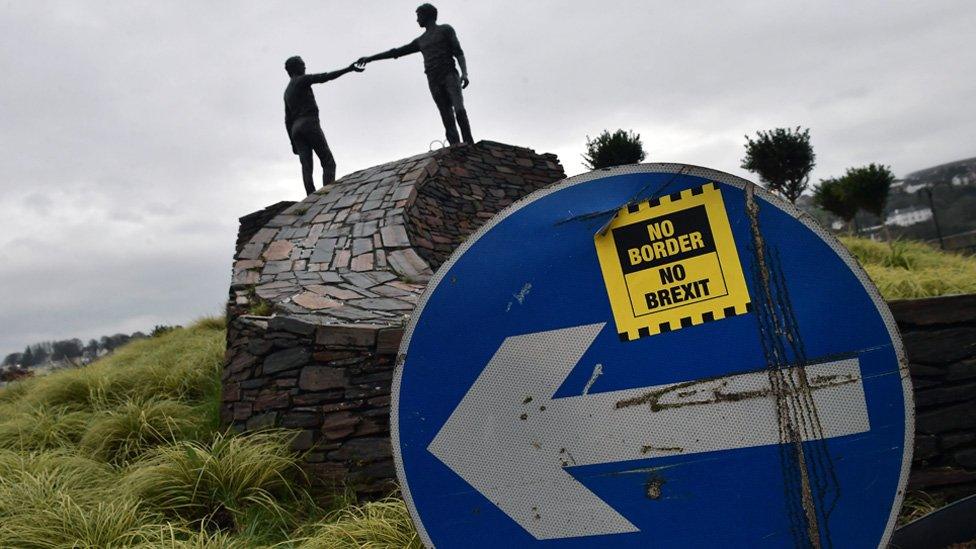
What about technology?
Another idea is to allow custom checks at a lorry's destination - rather than the border.
Technology could aid the process, with satellite navigation systems tracking lorries as they cross from Northern Ireland into the Republic.
Mobile inspection teams would then meet the lorries and scan the goods once they had completed their journey.
However, such a system would increase costs and complexity, especially for small businesses.
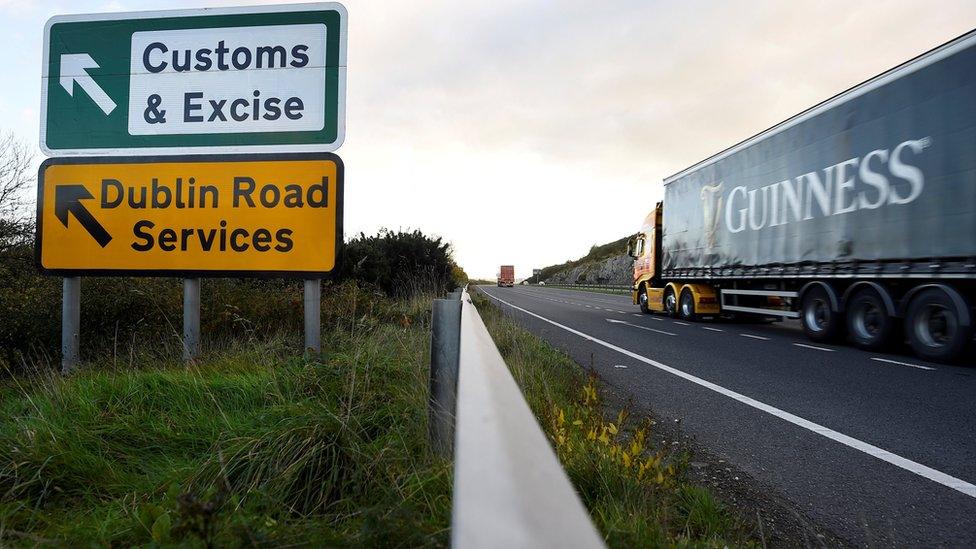
What about food standards checks?
Strict EU rules mean food products entering from a non-EU country must be subject to checks at the point of entry.
For example, a consignment of chicken arriving in the UK from Thailand has to be physically inspected to make sure what's written in the documents matches what's inside the containers.
In the event of a no-deal Brexit, the same inspection regime would be required for goods crossing from Northern Ireland to the Republic of Ireland.
British Veterinary Association president Simon Doherty says this would be a "nightmare scenario" for some producers.
"Take pizza," he says. "Imagine it's produced in Northern Ireland and exported to the Republic of Ireland and each ingredient comes from a different country.
"Let's say it has chicken from Thailand, chorizo from Spain and cheese from Ireland. Each of these individual ingredients will require their own audit trail if the rules are enforced."
Trusted-trader schemes and technological solutions are no real help with this issue as they deal with customs and not product inspections.
To get round this, the Alternative Arrangements Commission suggested these checks should take place away from the border.
But this wouldn't be allowed under current EU law.
The Alternative Arrangements Commission concedes that some way of keeping rules and standards the same is the best way to tackle this issue.
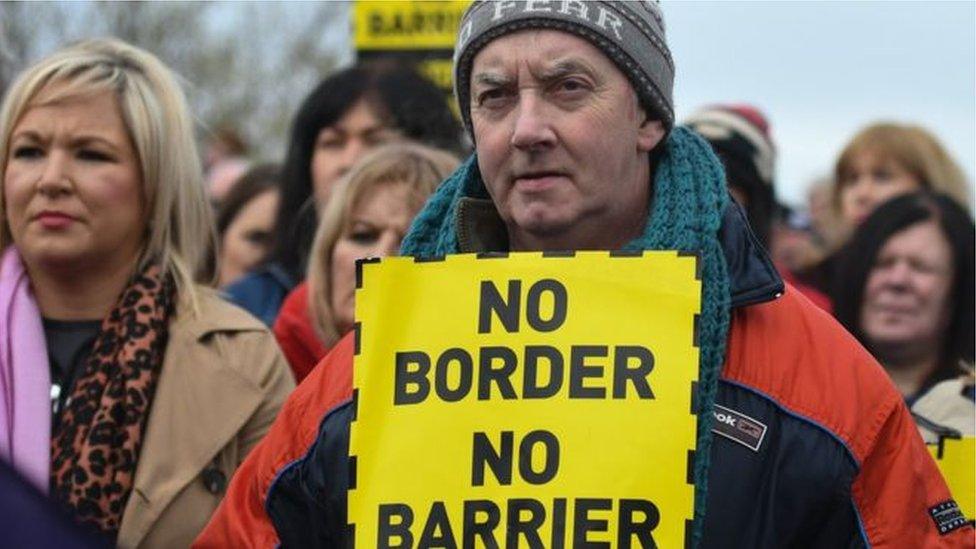
What has the EU said?
The EU has committed to working on alternative arrangements. Germany's Chancellor, Angela Merkel, has said the withdrawal agreement would not need to be reopened if a practical solution to the backstop could be found.
It committed to fast-tracking negotiations on replacing the backstop.
RTÉ's Brussels correspondent Tony Connolly has reported that EU officials have suggested that any alternative arrangements would have to meet five tests:
Avoiding a hard border
Complying with the EU customs code
Complying with EU principles
Complying with WTO rules
Protecting the all-island economy
But even if the EU agreed to an alternative solution, each one would take time, perhaps years, to implement and would require the cooperation of Ireland and the EU.
What about the Irish government?
The Irish government remains sceptical technical and administrative proposals would be enough to eliminate border checks.
It has also emphasised any solution must not introduce new checks - even away from the border.
It points to the 2017 Joint Report of the EU and UK, a interim deal, in which there was a commitment to avoid a hard border, "including any physical infrastructure or related checks and controls".
Some Brexit supporters say this would prohibit checks and controls at the border only. The Irish government disagrees.
- Published9 September 2019
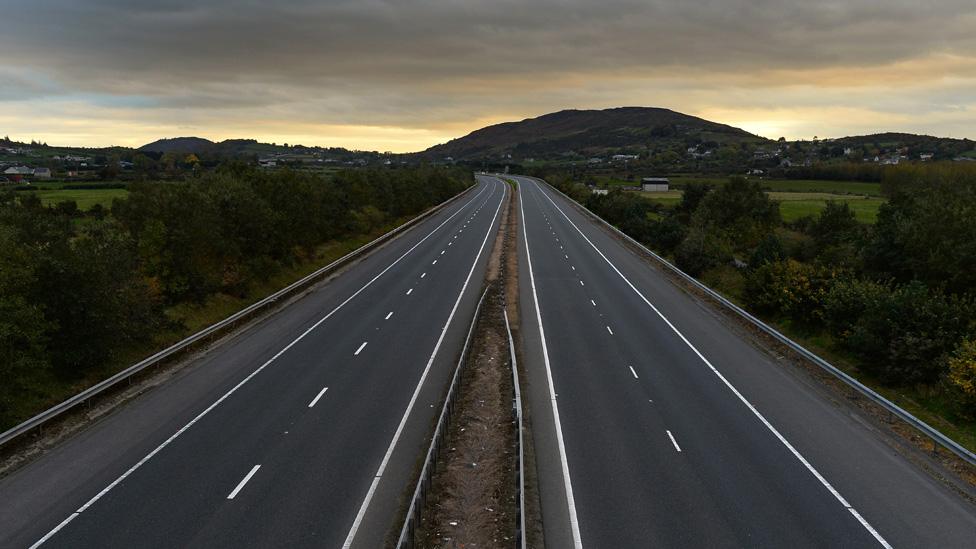
- Published20 June 2019
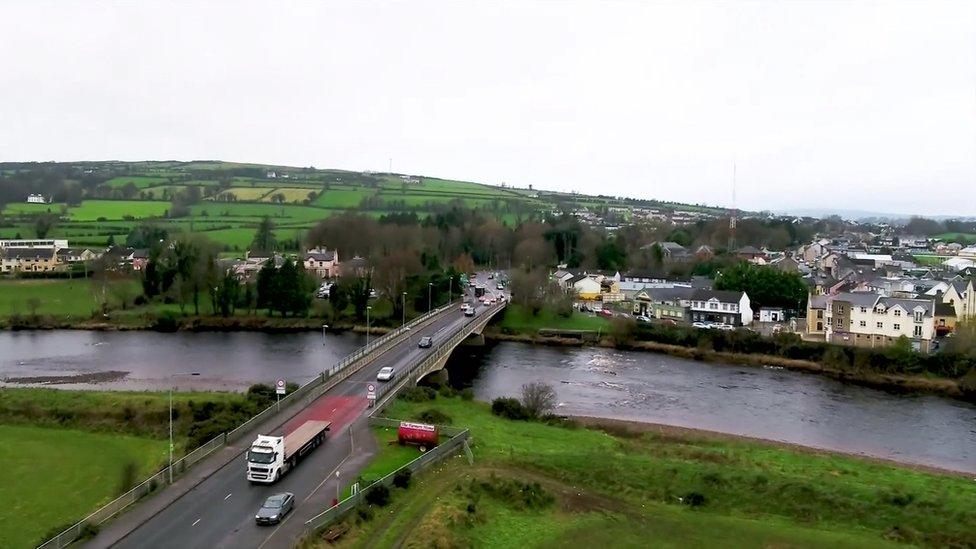
- Published2 July 2019
